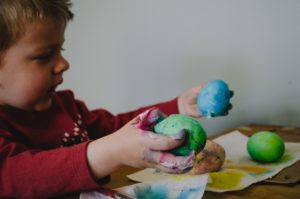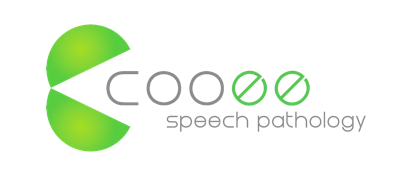How do joint SLP and OT sessions work?
Our Brisbane North Speech Pathologists and Occupational Therapists are talking how joint sessions can benefit your child.

Speech Pathologists and Occupational Therapists are known to be very collaborative in their practice, with one often complimenting the other and vice versa. Here at Cooee, we often take it a step further and offer joint Speech Pathology and Occupational Therapy sessions to those who it is deemed to be beneficial.
But how do these work and what is the benefit of seeing two professionals at the same time?
How they work
The term “interdisciplinary” is often heard around teams who have more than one type of profession or discipline. Joint sessions take “interdisciplinary” to the next level. Your Speech Therapist and Occupational Therapist will meet to collaborate and discuss current goals for your child. They will determine whether a joint session can achieve these goals or whether separate sessions will be more effective for your child. Once determined and the schedules are set; your therapists will discuss the goals of each session to ensure both Speech and Occupational Therapy goals will be met in the most efficient way.
What are the benefits?
There are many benefits of joint Speech and Occupational Therapy sessions.
- A vast amount of Occupational Therapy tasks and activities can incorporate Speech/Language goals; as OT’s work on Activities of Daily Life.
- Speech Pathologists can help your child learn language in a more functional way, in conjunction with an OT.
- Children who have difficulty with sensory or emotional regulation, can receive the support they need to optimally participate in speech/language tasks, with the assistance of an OT in session
- With multiple clinicians, children can work on social communication goals such as turn taking, waiting, winning/losing, with more than one person, so it is not as confronting
- Attention and participation goals can also be met as the child has to interact with more than one person at a time
- Joint sessions allow the disciplines to learn from each other to better treat clients
- Joint sessions reduce the amount of time spent at the clinic and in transit to the clinic. Instead of two 45 minute sessions; plus transit time, a single 1 hour joint session can actually save time in your week.
- While one therapist interacts with the child, the other therapist can be working one on one with the carer; teaching them strategies on how to support their child at home and in the community.
- Generally, a greater and quicker response to intervention is seen as a more holistic view of the child is taken – incorporating sensory and emotional regulation, plus motor skills and speech and language tasks – viewing the child as a whole, rather than aspects of one discipline.
- Joint sessions also foster communication between the therapists; opens the lines of communication further and allows the therapists and caregivers to be on the same page with the goals, and how they are going to be achieved.
How do I know if my child will benefit?
Your therapists will suggest a joint session, if they believe the goals targeted can be achieved together. In general, joint sessions are offered to children who may have difficulties in multiple areas across the speech therapy and occupational therapy disciplines; where the support of both clinicians will optimise the therapy experience and make therapy more effective.
For example; for a child who has sensory and emotional regulation difficulties, having an Occupational Therapist present to help the child and carer co-regulate and calm, can help the Speech Therapist meet her goals; as before communication can be layered on, a child must be regulated, calm and in an optimal state of arousal for learning.
What is the fee for a joint session?
As there are two therapists in the session, the therapy fee is charged per clinician. If you have private health, medicare support or NDIS funding, this can cover part or all of the fee, depending on the type of funding.
If you have any further questions regarding joint Speech Pathology and Occupational Therapy sessions, please contact us on (07) 3265 4495 or visit our website at www.cooeespeech.com.au
